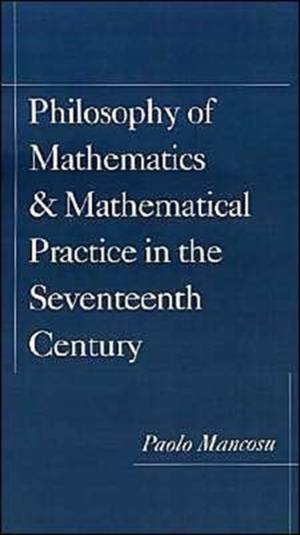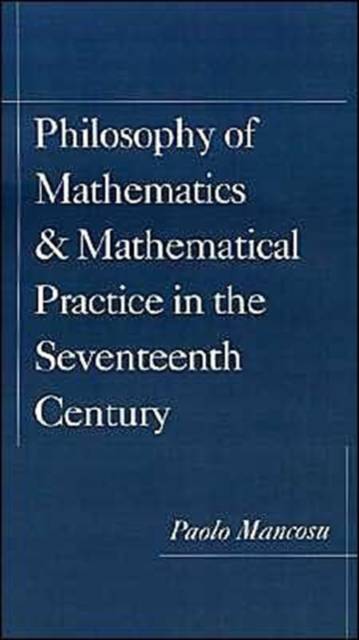
Door een staking bij bpost kan je online bestelling op dit moment iets langer onderweg zijn dan voorzien. Dringend iets nodig? Onze winkels ontvangen jou met open armen!
- Afhalen na 1 uur in een winkel met voorraad
- Gratis thuislevering in België vanaf € 30
- Ruim aanbod met 7 miljoen producten
Door een staking bij bpost kan je online bestelling op dit moment iets langer onderweg zijn dan voorzien. Dringend iets nodig? Onze winkels ontvangen jou met open armen!
- Afhalen na 1 uur in een winkel met voorraad
- Gratis thuislevering in België vanaf € 30
- Ruim aanbod met 7 miljoen producten
Zoeken
Philosophy of Mathematics and Mathematical Practice in the Seventeenth Century
Paolo Mancosu
Hardcover | Engels
€ 424,45
+ 848 punten
Uitvoering
Omschrijving
The seventeenth century saw dramatic advances in mathematical theory and practice. With the recovery of many of the classical Greek mathematical texts, new techniques were introduced, and within 100 years, the rules of analytic geometry, geometry of indivisibles, arithmetic of infinites, and calculus were developed. Although many technical studies have been devoted to these innovations, Mancosu provides the first comprehensive account of the relationship between mathematical advances of the seventeenth century and the philosophy of mathematics of the period. Starting with the Renaissance debates on the certainty of mathematics, Mancosu leads the reader through the foundational issues raised by the emergence of these new mathematical techniques, including the influence of the Aristotelian conception of science in Cavalieri and Guldin, the foundational relevance of Descartes' Geometrie, the relation between geometrical and epistemological theories of the infinite, and the Leibnizian calculus and the opposition to infinitesimalist procedures. In the process Mancosu draws a sophisticated picture of the subtle dependencies between technical development and philosophical reflection in seventeenth century mathematics.
Specificaties
Betrokkenen
- Auteur(s):
- Uitgeverij:
Inhoud
- Aantal bladzijden:
- 288
- Taal:
- Engels
Eigenschappen
- Productcode (EAN):
- 9780195084634
- Verschijningsdatum:
- 18/01/1996
- Uitvoering:
- Hardcover
- Formaat:
- Genaaid
- Afmetingen:
- 160 mm x 236 mm
- Gewicht:
- 603 g

Alleen bij Standaard Boekhandel
+ 848 punten op je klantenkaart van Standaard Boekhandel
Beoordelingen
We publiceren alleen reviews die voldoen aan de voorwaarden voor reviews. Bekijk onze voorwaarden voor reviews.











